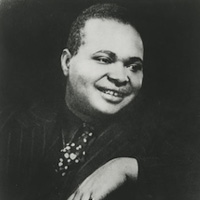Heritage by Countee Cullen: Summary and Analysis
Heritage by Countee Cullen was first collected in his first volume of poems Color which is regarded as the landmark for the Harlem Renaissance. This famous poem is also considered as the Black Waste Land because it is also about the confusion of the identity that Eliot, in his The Waste Land had dealt with modern people who, despite being aware of his own rich root are wandering around in the barren and conformist culture.

Countee Cullen (1903-1946)
In the first part of the poem, the speaker is celebrating the African heritage from the location of America. He repeatedly asks a question. What is Africa to me?” The copper sun, the scarlet sea, spicy groves, cinnamon tree are some of the important heritages of Africa which have transformed this continent into the paradise. For him, Africa is the beautiful garden with the diverse heritage which he constantly misses. Even in the American location he wants to hear the same song of African birds and the same music of African drums. He metaphorically describes Africa as a book with the different chapters. Different chapters of this book represent the different traditions, cultures, diversity of Africa. He wants to read the diversified pictures of beautiful Africa in the different pages of this book. Her cats, snakes, bats are some of the examples of this African heritage.
In the second part of the poem, the speaker misses his continent, especially at the time of rainfall. The rainfall in America takes him to Africa. He suffers because of the memory of the homeland. Then memory becomes the root cause of his restlessness.
In the concluding part of the poem, the speaker reflects the problems caused by his conversion leaving paganism of Africa, he becomes Christian and begins to pray the trinity. He belongs to the Christ, but he sees Christ in the dark image. He is constructing god in the image of African people; "Must my heart grow sick and falter/ Wishing He I served were Black," Because of this conversion, he is neither in Africa nor in America. He had lost something of African culture and adopted something of American culture. As a result, he is neither at home nor abroad. He is hanging between two cultures as a hybrid man. Hybridity is the result of his conversion.
Heritage is a poem with a very deep meaning behind it. Countee Cullen is an African-American writer. During the 1920's African-Americans were faced with many problems in writing. They were challenged with whether they should write in the traditional art form or create new forms that came from Black experiences or write similar to the way Americans wrote or write about global issues. Countee Cullen experienced these issues. In his long poem Heritage, the feeling of what being an African-American in America is like, is described. A state of ‘double-consciousness’ among the African American people is found and they are forced to see oneself from the eye of others. They are torn between two cultures and cannot be just to any of them. Cullen echoes the identity crisis of the postcolonial black people. His discomfort is clearly shown in the following verse: So I lie, who find no peace Night or day, no slight release From the unremittent beat Made by cruel padded feet Walking through my body's street. (Cullen 64-68)
